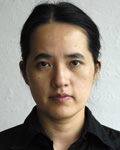| 
The recent broadcasting of the four-episode documentary Brightness and Haze—Retrospect on World War II by Germany and Japan on China's national broadcaster CCTV has sparked much discussion and received extensive coverage at home and abroad. Experts and scholars hold that this documentary makes some persuasive arguments based on its objective analysis of the different attitudes held by Germany and Japan toward their respective roles in World War II (WWII).
This year marks the 70th anniversary of the victory of the Chinese People's War of Resistance Against Japanese Aggression and also of the world's anti-fascist war. With the passing of time, the number of living survivors of the war has dwindled. The documentary's producers have attempted to recreate for the audience important scenarios of that time by interviewing researchers, personnel in political circles and ordinary people, drawing upon the most up-to-date research findings, materials, discoveries and consensus, and bringing to light some little-known historical facts and files.
The documentary observes the fact that Germany has been able to face up to its history of invasion and is willing to admit to its war crimes and to continue to reflect on its history. Successive post-war German governments and leaders have apologized for the country's war atrocities on multiple occasions. Germany has devoted a lot of attention to the education of its people, particularly the young, on the history of WWII. Thanks to the efforts by millions of German people to face their own past, the desire to prevent a repeat of such tragedy has already become a consensus within German mainstream culture.
To illustrate this fact, the documentary depicts Willy Brandt, then Chancellor of the Federal Republic of Germany, to the surprise of many kneeling down at the monument to Warsaw Ghetto victims during his visit to Poland in 1970. Brandt knelt down, and Germany stood up. After WWII, Germany paid reparations of $100 billion to the countries it had victimized. It achieved reconciliation with Poland, France and other countries by participating in the compilation and writing of history textbooks for middle schools. In 2005, at the moment of the 60th anniversary of the end of WWII, a Holocaust monument was build up in the downtown of Berlin, an explicit reminder of the Jewish population that was massacred in Europe.
It is because of this contrite and contemplative attitude that Germany has won forgiveness and respect from its neighbors, creating a good environment for its post-WWII development. Germany is playing a leading role in Europe and internationally in both economic and political terms.
Japan, which was also on the losing side in WWII, however, has failed to properly handle the historical issue. The documentary goes into detail on the distorted outlook of the Japanese right-wing forces on WWII history. From Emperor Hirohito's imperial edict on armistice that averted taking accountability for war crimes, to Prime Minister Shinzo Abe's provocative statement that the definition of aggression is yet to be established academically and internationally, Japan is going farther and farther down the road of historical revisionism.
According to Bu Ping, a research fellow with the Chinese Academy of Social Sciences and the documentary's historical consultant, in the imperial edict of armistice, Emperor Hirohito did not once make mention of words such as "surrender" or "defeat," instead merely declaring the war ended. The emperor also said that Japan originally launched the war for the sake of its own survival and the tranquility of East Asia. In accordance with Jiang Feng, a Chinese writer who has lived in Japan for years, since the normalization of diplomatic relations between China and Japan in 1972, Japan has apologized to China 22 times in formal documents and on formal occasions for its wartime crimes, but every time, within a month after an apology was made, some right-wing politicians would deny it. Even more unacceptable is the fact that the Yasukuni Shrine in Tokyo enshrines 2.46 million Japanese killed in historical wars, among them 14 class-A criminals in WWII. From 1945 up until now, 15 Japanese prime ministers have paid a total of 68 visits to the shrine.
Japan has done too little at the governmental level to reflect on its wartime actions and to make amends for them in terms of policies and ideologies. Right-wing extremists have even expressed their tacit contempt of humanitarianism, basic human rights and even life. Some influential figures in Japan have never missed the opportunity to deny and even beautify their country's history of invasion, instead, choosing to adopt the role of war victim and to highlight the terrible wartime conditions faced by the Japanese people so as to shake off responsibilities for their part in the conflict. Disregarding its neighbors' legitimate concerns and opposition from its own people, the Japanese Government is promoting a regional arms race and stoking tensions with neighbors. Although WWII is far behind us, the 60 million lives lost to the war testify that when a war breaks out, no one is immune. As the end of the documentary states, "If a nation is not to seriously examine this section of history, it means it is unable to take responsibility for the future of mankind. We pray for peace and pray that all countries and nations can embrace peace after having emerged from the war."
|
